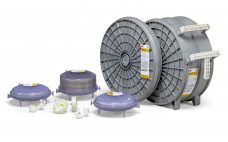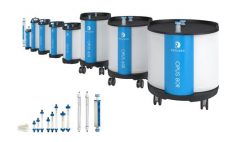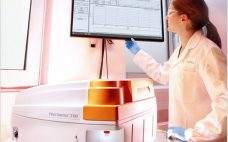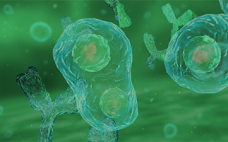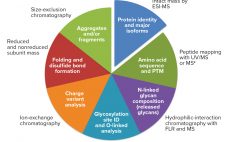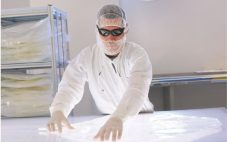This webcast features: Orville Dean Stuart, Technical Regional Sales Manager, Thermo Fisher Scientific This webinar presents the use of a handheld Raman analyzer with onboard chemometrics to verify the identify and monitor the quality and batch-to-batch variability of both dry powder chemically defined media and ready-to use liquid cell culture media. While scans of cell culture media using Thermo Scientific’s TruScan RM handheld Raman analyzer produce spectra with good Raman features, due to similar constituents and formulations, the TruTools add-on…
Sponsored Content
Investigation of Hitchhiking Impurities Removed by the 3M EMPHAZE AEX Hybrid Purifier
This webcast is hosted by: Dr. Hani El-Sabbahy, Biopharmaceutical Application Engineering Specialist, Separation and Purification Sciences Division, 3M United Kingdom PLC 3M™ Emphaze™ AEX Hybrid Purifier is an all-synthetic clarifier consisting of a high capacity Q-functional hydrogel and a 0.2 ÎĽm polyamide membrane. The open structure and high charge capacity can handle turbid feeds, resulting in soluble and insoluble contaminant removal. Using data generated by sophisticated LC-MS/MS techniques, this webinar will explore the impact of deploying the Emphaze AEX Hybrid…
Packing Rigid POROS Chromatography Resins: Efficient and Fast Method to Get Optimal Results
This webcast features: Dr. Anna Le Bris, Senior Application Specialist, Bioproduction, Thermo Fisher Scientific POROS resins are widely used in commercial bioprocesses for the purification of large molecules, in both the capture and polish steps of downstream processing. POROS chromatography resins are based on a rigid polymer, allowing them to withstand very high pressure and be mechanically and chemically stable. Because POROS is a rigid bead, it can be packed in cGMP columns with volumes up to 1000 L. POROS…
Robust Performance of OPUS® Columns Pre-Packed with CHT™ Resin
This webcast features: Fletcher Malcom, Product Line Leader – Chromatography, Repligen Ceramic hydroxyapatite (CHT™) resins are used in processes where unique selectivity is desired for purification of mAbs or recombinant proteins. Until recently, shipping columns pre-packed with CHT™ resin provided challenges due to the fragile nature of the chromatographic bed. To overcome these challenges, Repligen has developed a proprietary packing method for CHT™ resins which maintains chromatographic performance during transit. In this presentation, packing performance and shipping validation data will…
Scalable Purification Strategies for Viral Vectors and Vaccines
This webcast features: Mark A. Snyder, Ph.D., R&D Manager, Process Chromatography Applications, Bio-Rad Laboratories Large-scale downstream processing of viruses can face a range of obstacles different from those of many biotherapeutics. These challenges mostly arise from the size and complexity of the virus, which can affect product purity and recovery. Improvements of purification tools are necessary to overcome these challenges and must be engineered for easy scalability to meet manufacturing demands. Dr. Mark Snyder will discuss the difficulties when developing…
The Impact of Rapid Virus Quantification in the Development and Manufacture of Advanced Therapies
This webcast features: Antje Schickert, Product Manager, Virus Analytics, Sartorius Stedim Biotech Viral vectors, such as lenti- and adeno-associated viruses, are increasingly being used for the production of cell and gene therapies. In-depth sample characterization and precise enumeration of total viral vectors is needed throughout the manufacturing process and particularly for the final formulation. Learn how rapid accurate enumeration of the total virus provides timely information on titer leading to accelerated process development and increased efficiency of viral vector manufacturing.…
Analytical Power Tools Open Upstream Bioprocessing Bottlenecks
The blockbuster success of antibody-based therapeutics for autoimmune diseases, inflammatory diseases and immuno-oncology accelerated the high stakes monoclonal antibody (mAb) development race. Clone selection is a significant upstream bottle-neck slowing bench-to-bedside development progress for new mAb-based therapeutics. Cy-Clone™ PLUS, a validated assay kit accelerates human mAb production cell-line generation, significantly reducing the time to industrial-scale productivity. Cy-Clone PLUS assay combined with the Intellicyt® iQue platform and integrated ForeCyt® Software are powerful analytical tools that inform rapid go/no-go decisions with multiparameter,…
Time Is of the Essence: Optimizing Cell Line Development
Cell line development is a critical upstream step for the manufacture of monoclonal antibodies (MAbs). Cells must be engineered to produce a biologic of interest, and the right clone must be selected to deliver material for preclinical and clinical studies. A high-producing cell line is then needed to support clinical studies and, ultimately, commercialization of the therapeutic. Please fill out the form below to read more. Corresponding authors are Aurore Poles, Global Technical and Compliance Expert, and Guillaume Plane, Global…
Biosimilarity Assessments: The Totality of Evidence Framework
Biosimilars are evaluated through comparisons with their reference products using abbreviated pathways that have evolved significantly over the past few years. Scientists and regulators now accept that some quality attributes can vary from batch to batch over a product’s lifecycle, even for reference products. Moreover, reference and similar biotechnology products can show differences in noncritical quality attributes but still demonstrate comparable efficacy and safety (1). Here we describe a similarity assessment approach that is also applicable to comparability of lifecycle…
Embedded Particles in Single-Use Bags: Risk to Bag Integrity and Drug Product Purity, or Only a Cosmetic Defect?
When using single-use systems (SUS) to process biopharmaceuticals, preventing drug product contamination from extractables and leachables (E&Ls) and embedded particulate matter (gel particles) in the polymer films used to make bioprocess bags is critical. Using a pressure burst test to assess film integrity, Sartorius Stedim Biotech’s Klaus Wormuth and colleagues compared Flexboy and Flexsafe samples with gel-particle-free materials to assess their potential for contamination. The results showed that only large (2–4 mm2) gel particles affected the burst test results, concluding…


